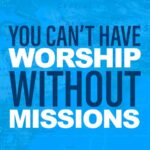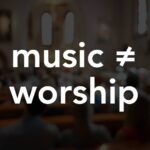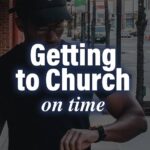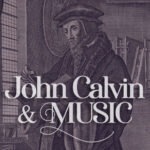I’m writing this on the morning of the Fourth of July. The kids are already wearing their red, white, and blue; this evening we plan to grill hamburgers and then go to the park up the road for fireworks; we made a dessert with blueberries and cherries atop in the form of an American flag (pictured below!). We love our country and the freedom it offers. (And I think we love the festivities of this day every bit as much!) I’m thankful for the freedom that Independence Day commemorates.
This year, as I’ve thought about independence, I’m struck by the direct connection between freedom and service that we see in the Scriptures:
- Do not use your freedom as an opportunity for the flesh, but through love serve one another. Galatians 5:13
- Not using your freedom as a cover-up for evil, but living as servants of God. 1 Peter 2:16
- For though I am free from all, I have made myself a servant to all. 1 Corinthians 9:19
A Different Kind of Freedom
I realize that the liberty spoken of by the apostles in these passages is not the same kind that we celebrate in America. Peter and Paul are talking about spiritual liberty made possible by Christ. It is not likely that these two men had national freedom in mind; after all, they like many Christian leaders of the first century were both martyred—Peter was crucified upside down, and Paul was beheaded.
Spiritual freedom does not guarantee national liberty; national liberty does not guarantee spiritual freedom. There are many brothers and sisters across the world today who have received Christ and do not celebrate the Fourth-of-July kind of liberty, and there are many citizens of the United States who enjoy the independence won by soldiers’ blood who reject Christ’s offer of salvation.
Whether we’re talking about spiritual or national freedom, the principle offered by Peter and Paul under the Spirit’s inspiration still applies—the best way to use your freedom is to serve others.
This Spiritual Application of this Principle
Christ has freed us to obey his great commandment to love God and love others. This great opportunity demands great responsibility, and the Scriptures tell us three times (see the bullet points above) that spiritual freedom is to be lived out in the form of service to others.
We are reminded of the words spoken by our Lord as he humbly serves his students by washing their feet: “Truly, truly, I say to you, a servant is not greater than his master” (John 13:16). If Christ has served sinners, so we who have been saved should also use our liberty as an occasion to serve others.
The Principle Applied as a Citizen
This seems almost too simple, but it must be stated: No society can exist for very long whose citizens do not serve one another. Here are quotes from leaders who understood the fundamentality of serving one another:
“This country will not be a good place for any of us to live in unless we make it a good place for all of us to live in.” —Theodore Roosevelt
“We make a living by what we get, but we make a life by what we give.” —Winston Churchill
“Everyone can be great, because everyone can serve.” —Martin Luther King, Jr.
“Ask not what your country can do for you—ask what you can do for your country.” —John F. Kennedy
It seems that many Americans have forgotten this important principle. On many levels, we’ve become a selfish society. We seek our own good and fortune, and we leave behind the concerns and needs of our neighbors. The multiplicity of societal ills will not improve until we learn to live this basic principle ingrained into the DNA of our existence by the Creator—no society can exist for very long whose citizens do not serve one another.
Service and Freedom Enshrined in the Declaration of Independence
The Founders understood the importance of service in a free society. Here is the final sentence of the Declaration of Independence:
And for the support of this Declaration, with a firm reliance on the protection of divine Providence, we mutually pledge to each other our Lives, our Fortunes and our sacred Honor.
“We mutually pledge to each other…” Wow. What a thought. This room of revolutionaries understood that pledging to one another their most precious possessions—life, possessions, and honor—was the path to establishing and preserving their freedom. Nearly 250 years later, the amount of Americans who believe in God is dropping, and our Nation continues to reject fundamental Christian principles like this connection between freedom and service as regressive and oppressive, and in doing so, has offered a new religion rooted in self-promotion and self-expression.
Conclusion
I am by no means promoting moral behavior as society’s hope as if learning to serve one another will solve all our Nation’s problems. Our only hope is the Gospel of Jesus Christ. But at the heart of the Gospel is sacrifice and service, and God’s common grace is bountiful for any nation who seeks his truth and goodness.
May Christians be the first to exemplify service in our society.
“A new commandment I give to you, that you love one another: just as I have loved you, you also are to love one another. By this all people will know that you are my disciples, if you have love for one another” (John 13:34-35).










One Response
Great article! Thank you for being a good servant for Christ😊